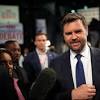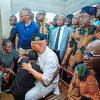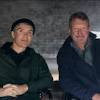North Korean Troops in Russia Show Putin Is Doubling Down on ...

After signing a mutual defense pledge in June, North Korea and Russia relations appear to be deepening. U.S. officials confirmed last week that North Korean troops, including elite special forces, were in Russia for training and potentially combat operations against Ukraine. This represents a “dangerous expansion of the war,” according to U.S. and NATO officials. It could also have serious ramifications for peace and security on the Korean Peninsula. South Korea is concerned that the deployment of North Korean troops could provide them valuable combat and technical experience. Meanwhile, China is watching closely to see what this means for its influence over North Korea and the implications for broader geopolitical tensions with the West.
USIP’s Mary Glantz, Frank Aum, Carla Freeman and Naiyu Kuo explain what this demonstrates about Russia’s strategy in Ukraine, what it means for dynamics on the Korean Peninsula and how China perceives this development.
Why are North Korean troops in Russia and what does this signal about Russia’s strategy in Ukraine?
Glantz: Various reports from Ukrainian, South Korean and U.S. sources indicate that there are currently 10,000 North Korean soldiers in Russia, with expectations that that number could increase to as much as 12,000. Speaking to the press last Wednesday, U.S. Defense Secretary Lloyd Austin said it was unclear what those soldiers would eventually do. Ukrainian President Volodymyr Zelenskyy, however, insisted the North Korean forces will be used in Russia’s war against Ukraine. Indeed, Ukrainian military intelligence reported on October 24 that the first North Korean units had arrived at the front in Russia’s Kursk oblast, where Ukraine holds some territory. Russian President Vladimir Putin did not deny that North Korean forces were operating in Russia, insisting that it was up to Russia to decide how to implement its military alliance with North Korea.
Putin and North Korean President Kim Jong Un signed a mutual defense pact in June of this year. Article 4 of that treaty reportedly states: “In case any of the two sides is put in a state of war by an armed invasion ... the other side shall provide military and other assistance with all means in its possession without delay.” The lower house of the Russian parliament (the Duma) voted unanimously to ratify that treaty on October 24.
The juxtaposition of the treaty ratification with the arrival of the North Korean troops is unlikely to be a coincidence. The Kremlin appears to be invoking a legal justification for foreign military support in its war against Ukraine; placing the North Koreans at the front in Kursk, the site of the Ukrainian attack into Russia, rather than in the Donbas, where the fiercest fighting is taking place, supports this conclusion. What exactly these soldiers will do, however, remains unclear. Speculation ranges from reconstruction of rear areas to actual combat against Ukrainians.
South Korean intelligence believes these are highly trained special forces troops, which would suggest there is a combat dimension. What difference 12,000 soldiers, however highly trained, would make in a war that has already consumed more than 600,000 Russian casualties is a real question. Regardless, bringing allied forces to bear in the fighting represents an escalation and an implicit challenge to Ukraine and its supporters, who have thus far refrained from sending troops to take direct part in the combat.
The nature of Russian strategy and how these North Korean soldiers fit into it remains unclear. Undoubtedly, Russia’s willingness to welcome foreign soldiers into its fight indicates increasing need for manpower. Russia’s overall strategy appears to be to continue to pressure Ukraine to the point where it sues for peace. In addition to pushing back on the Ukrainian presence in Kursk, this involves continued offensive operations in the Donbas designed to conquer the remainder of the Donetsk region Moscow illegally annexed in 2022. Those operations are essentially grinding attacks that result in approximately 1,200 Russian casualties a day; any additional manpower would certainly be useful to the Kremlin. Yet at that casualty rate, even 12,000 North Korean troops would only be sufficient for 10 days of operations, so it is unlikely that additional manpower is the sole driver of Russian strategy vis-à-vis the North Koreans.
Russia's overall strategy appears to be to continue to pressure Ukraine to the point where it sues for peace.
More likely, North Korea’s participation in combat fits the Kremlin’s broader strategy of expanding chaos to challenge Ukraine’s Western backers. With the United States and its Pacific allies already warily watching Russia-China relations, this adds an additional wrinkle to an already tense situation. Putin likely believes this will further stretch Western resources and, as a result, support for Ukraine. At the same time, Putin may be using the addition of these troops to signal to his other “allies” that he is not internationally isolated and is able to tap into additional resources as necessary.
The bottom line is the participation of North Korean troops in the war suggests Putin is doubling down on his war against Ukraine. Sadly, this likely means he is not in any hurry to make peace if it means Russia conceding anything.
What does this mean for dynamics on the Korean peninsula and South Korea’s involvement in the Ukraine war?
Aum: The Yoon administration stated that the direct deployment of North Korean troops in the Ukraine conflict represents a grave security threat to South Korea. Officials have argued that North Korean troops would be able to gain direct combat experience and performance data for weapons, including drones and ballistic missiles, which could potentially put South Korea at risk. At a minimum, the deployments intensify the country’s solidarity with Russia, providing Pyongyang with more leverage to seek additional aid from Moscow and greater confidence in withstanding international pressure. So far, Russia has been supplying a wide range of assistance to North Korea, including food, oil, hard currency, military technology and political support. But South Korea is also concerned that Russia is helping to modernize North Korea’s conventional weapons and satellite launch capabilities, which would improve its ability to conduct surveillance against U.S. and South Korean forces.
Despite threats of sending "offensive weapons" to Ukraine, however, South Korean direct assistance will likely remain limited to humanitarian and non-lethal aid.
In response, the South Korean government stated that it is considering “phased countermeasures.” Despite threats of sending “offensive weapons” to Ukraine, however, South Korean direct assistance will likely remain limited to humanitarian and non-lethal aid because domestic law prevents it from exporting weapons into active conflict zones. President Yoon doesn’t have the ability to pass necessary legislation to change that given his unpopularity and the opposition party’s control of the National Assembly. South Korea could continue sending ammunition indirectly through the United States and other countries. It is also possible that South Korea could send personnel to Ukraine to assist with speaking with North Korean soldiers who defect or are captured or help analyze North Korean tactics and capabilities. The Yoon government has already increased its consultations with NATO to ensure appropriate coordination, intelligence sharing and to discuss other potential measures.
How does China see these developments?
Freeman and Kuo: The presence of North Korean soldiers in Russia bedevils China’s efforts to distance itself from the growing military cooperation between neighboring Russia and North Korea — the former a security partner and the latter China’s only formal treaty ally. Beijing has vociferously protested against conjecture that it is part of an emerging security axis with Moscow and Pyongyang. It has also denied it has concerns about the deepening ties between Moscow and Pyongyang despite their implications for the geopolitical influence Beijing has wielded over Pyongyang in recent decades, as Chinese trade and investment have been economic life support for its neighbor. Indeed, in August, Beijing’s foreign ministry spokesperson welcomed closer ties between North Korea and Russia, calling them “friendly neighbors.”
China now finds itself on the defensive given its Russia-leaning stance on the Ukraine conflict and its own alliance relationship with North Korea. When the United States announced that there was evidence that Pyongyang had sent thousands of soldiers to Russia, China’s foreign ministry spokesman initially responded that China was “not aware of the situation.” China’s state media has since sought to explain the deployment by suggesting that the Russia-North Korea mutual assistance clause in the strategic partnership agreement signed in June — which Kim likened to an “alliance” — requires Pyongyang to provide this support.
There are other immediate reasons China likely sees this latest development in Russia-North Korea relations as problematic for its interests. Among these, it puts a monkey wrench in the full court diplomacy China has been waging to improve trade relations with Europe. In addition, it may confound Beijing’s ongoing negotiations with Seoul on improving ties, including efforts to conclude a bilateral free trade agreement. Likely of even greater concern to Beijing, however, is that Pyongyang’s willingness to send troops to support Russian combat operations could speed efforts among the United States, Japan and South Korea to strengthen trilateral security ties, which Beijing sees as a move toward Cold War-style containment. Meanwhile, China's own experts warn that North Korea’s boots on the ground risks enlarging the war — and even ensnaring China in the conflict.
China’s weight in both the Russian and North Korean economies gives it enormous influence that Beijing could leverage over the two countries. If China does not support this manifestation of North Korea’s military relationship with Russia, it should make that abundantly clear. To date Beijing has shown few signs that it is concerned about Pyongyang’s actions. Instead, on October 29, when asked about China’s role amid possible heightened tensions from North Korean troop deployments, China's foreign ministry reaffirmed Beijing’s long-standing position on the Ukraine crisis and the Korean Peninsula. China is likely to maintain this wait and see approach (at least on the surface) on the growing Kremlin-Pyongyang ties unless North Korean troop involvement significantly impacts the Ukraine war or North Korea takes actions that risk further escalating the conflict.
PHOTO: A Ukrainian army vehicle in the Kursk region of Russia, Aug. 12, 2024. North Korean soldiers have arrived in Kursk, where they are expected to support Moscow’s efforts to dislodge invading Ukrainian forces. (David Guttenfelder/The New York Times)
The views expressed in this publication are those of the author(s).
PUBLICATION TYPE: Question and Answer


 New Zealand
New Zealand Argentina
Argentina  Australia
Australia  Austria
Austria  Brazil
Brazil  Canada
Canada  Chile
Chile  Czechia
Czechia  France
France  Germany
Germany  Greece
Greece  Italy
Italy  Mexico
Mexico  Nigeria
Nigeria  Norway
Norway  Poland
Poland  Portugal
Portugal  Sweden
Sweden  Switzerland
Switzerland  United Kingdom
United Kingdom  United States
United States 























